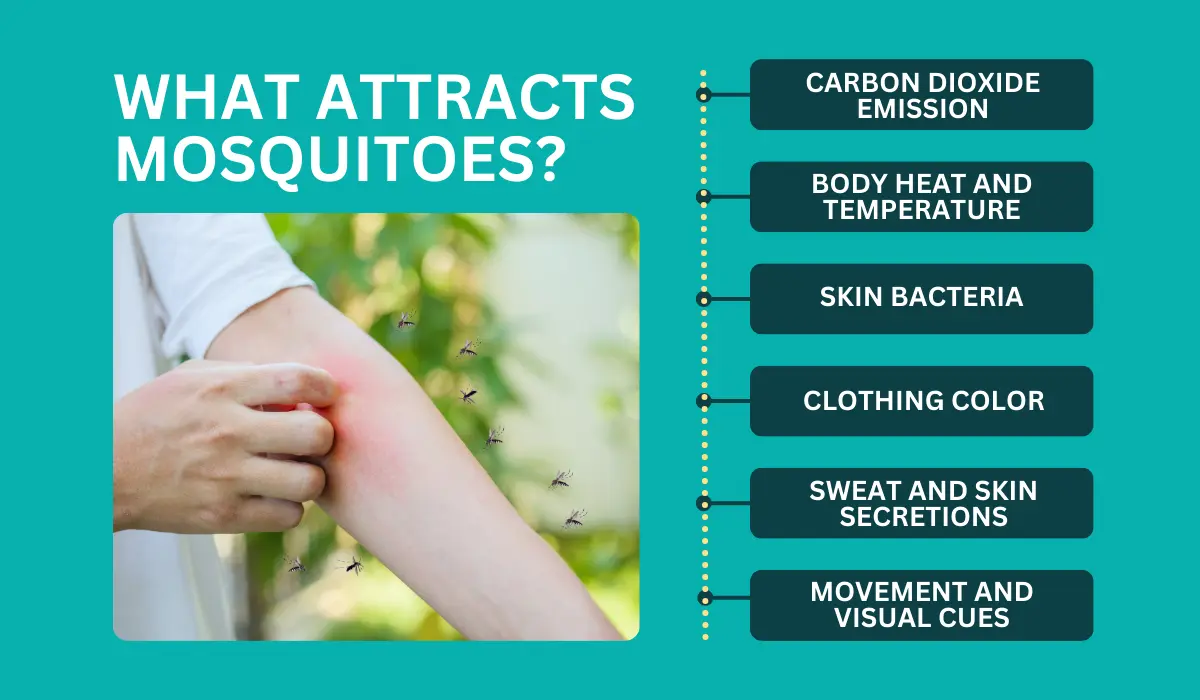What Blood Type Do Mosquitoes Like?
Did you know that mosquitoes have a preference when it comes to blood type?
People with Blood Type O blood are more attractive to various mosquito species than other blood groups. If you’re one of the 37% of the population with Type O blood, you might get bitten more often.
What other factors make you a mosquito magnet beyond blood? Keep reading to find out why mosquitoes are drawn to certain blood types and how to protect yourself.
Key Takeaways
- Different blood types attract various mosquitoes with varying intensity, with Type O blood being the most appealing and Type A the least.
- Carbon dioxide, body heat, skin bacteria, and clothing color attract mosquitoes to humans, making some people more susceptible to bites.
- Protective measures against mosquitoes include eliminating stagnant water, using essential oils, applying insect repellents, wearing protective clothing, and considering professional pest control services.
Do Mosquitoes Prefer Certain Blood Types?
Different blood types attract mosquitoes to varying degrees. Researchers have studied which blood types most appeal to these pesky feeders.
What Research Says About Blood Types and Mosquitoes
In entomology, scientists have found that various species of mosquitoes show preferences among different blood types. This variation is primarily attributed to specific antigens (proteins) in the blood.
For Aedes aegypti and Aedes albopictus, here’s what their preference looks like:
Human Blood Types | Attractiveness to Mosquitoes |
Type O | Most Attractive |
Type B | Moderately Attractive |
Type AB | Moderately Attractive |
Type A | Least Attractive |
In a separate study on Anopheles mosquitoes, researchers found that these mosquitoes land on human skin with Blood Type O, followed by A, B, and AB groups.
What Attracts Mosquitoes?

While studies suggest people with Type O blood are bitten more often, the research is ongoing, and other factors can influence mosquito attraction.
Here are other ways you are unknowingly attracting them.
Carbon Dioxide Emission
Mosquitoes have a keen sense of carbon dioxide, making it a primary signal that draws them to humans.
As humans and animals breathe out carbon dioxide, mosquitoes can detect these emissions from up to 50 meters away. This ability allows them to target potential hosts even in the dark.
Body Heat and Temperature
Female mosquitoes are sensitive to body heat, which helps them locate warm-blooded hosts. This sensitivity allows them to home in areas of the skin where blood flow is closer to the surface.
Your body temperature can vary for several reasons, such as:
- Physical Activity: Increases body temperature, making you more noticeable.
- Clothing: Wearing tight or thick clothing can trap heat, attracting mosquitoes.
- Ambient Temperature: Warmer environments can enhance mosquito activity.
Skin Bacteria
Human skin hosts a myriad of bacteria, and the chemical byproducts they produce play a crucial role in mosquito attraction.
Your genes influence the type and amount of bacteria on your skin, further affecting your attractiveness to mosquitoes.
Skin bacteria interact with sweat and secretions to create distinct body odors that vary between individuals.
Clothing Color
The color of clothing can significantly impact mosquito attraction. For instance, dark and bold colors like black, navy, and red appeal to mosquitoes. These colors likely mimic the shading of their natural environments or hosts.
Sweat and Skin Secretions
Mosquitoes are particularly attracted to the compounds found in sweat and secretions on human skin. As secretors of chemical lures for these bloodsuckers, the natural compounds include:
- Carboxylic Acid: Enhance the attractiveness of human skin to mosquitoes.
- Lactic Acid: Produced during exercise; strong attractant.
- Uric Acid: Present in sweat; another key attractant.
- Ammonia: Emitted through sweat; contributes to the overall scent profile.
Movement and Visual Cues
Mosquitoes are also drawn to movement and visual cues, triggering their hunting behavior. They use their vision primarily during daylight hours to detect moving objects, especially those resembling a potential host's size and shape.
How to Protect Yourself Beyond Your Blood Type
Keeping mosquitoes away from your property involves more than just your blood type.
As they are vectors of many mosquito-borne diseases, such as Dengue fever, Zika virus, and West Nile virus, various strategies help minimize contact with these pesky insects.
Drain Stagnant Water
Stagnant water attracts mosquitoes and becomes a perfect breeding site for them. By ensuring there's no stagnant water around your home, you can reduce mosquito breeding grounds.
To effectively remove standing water:
- Check and empty birdbaths
- Turn over empty flower pots
- Clean gutters regularly
Utilize Essential Oils
Essential oils can be a natural way to repel mosquitoes without bug sprays. Oils like lemon eucalyptus have been found to keep mosquitoes at bay.
When using essential oils for mosquito repellent, consider these steps:
- Dilute essential oils in a carrier oil before applying them to the skin.
- Use diffusers inside the home to disperse the scent.
- Essential oils such as citronella, tea tree, and lavender can be used effectively.
Apply Insect Repellent
Insect repellents are a standard defense against mosquitoes. Pregnant women and individuals spending time in mosquito-prone areas should consider using repellents endorsed by the Centers for Disease Control and Prevention (CDC).
Wear Protective Clothing
Even though your Type A blood is least attractive, dressing appropriately can significantly reduce mosquito bites.
To keep mosquitoes away, consider these tips for protective clothing:
- Wear long-sleeved shirts and long pants.
- Opt for loose-fitting, breathable fabrics.
- Choose light-colored clothing to minimize mosquito attraction.
Should You Call a Professional?
If you find yourself swarmed by mosquito bites despite taking all precautions, it might be time to call a professional pest control company (like us at Native Pest Management).
As experts, we can assess the situation and apply difficult-to-obtain treatments, ensuring the job is done efficiently.
